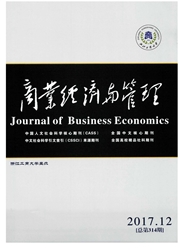

 中文摘要:
中文摘要:
文章针对我国城市化进程对大量基础设施需求的资金“瓶颈”、资金效率和渠道,通过理论与实证方法研究了我国公共资本和私人资本投资基础设施的效率、结构和影响这些资本投入总量的内在机制。结论是:有效的基础设施投资效率,既需要政府公共投资,也需要市场化私人投资,两者的比重与效率为倒U型,其最佳融资比例结构约为1:2;相对公共资本,私人资本的逐利行为对基础设施投资有更高的产出效率;私人资本投入规模受居民消费水平、市场化程度和公共资本拉动的影响;公共资本投入的规模受地方政府治理水平、政府与市场的关系和经济发展水平的影响;采用市场机制并不意味着政府可以退出基础设施市场,“公”、“私”并存才能更好地取长补短。
 英文摘要:
英文摘要:
This paper studies the investment efficiency, structure and its influence on both the public and private capital investment infrastructure. The main findings are as follows:An efficient infrastructure investment needs both the public capital of the government and the private capital of the market, their proportion and efficiency seems like an inverse U, and the best proportion approximates to 1:2; furthermore, the private capital is more effective than the public capital. The investment of the private capital is influenced by the inhabitant consumption level, the market degree and the drive of public capital, while the investment of the public capital is influenced by the governing level of the local government, the relationship between government and the market as well as the GDP. These results show that" public" and "private"co- existence could lead to a positive result from infrastructure investment.
 同期刊论文项目
同期刊论文项目
 同项目期刊论文
同项目期刊论文
 期刊信息
期刊信息
